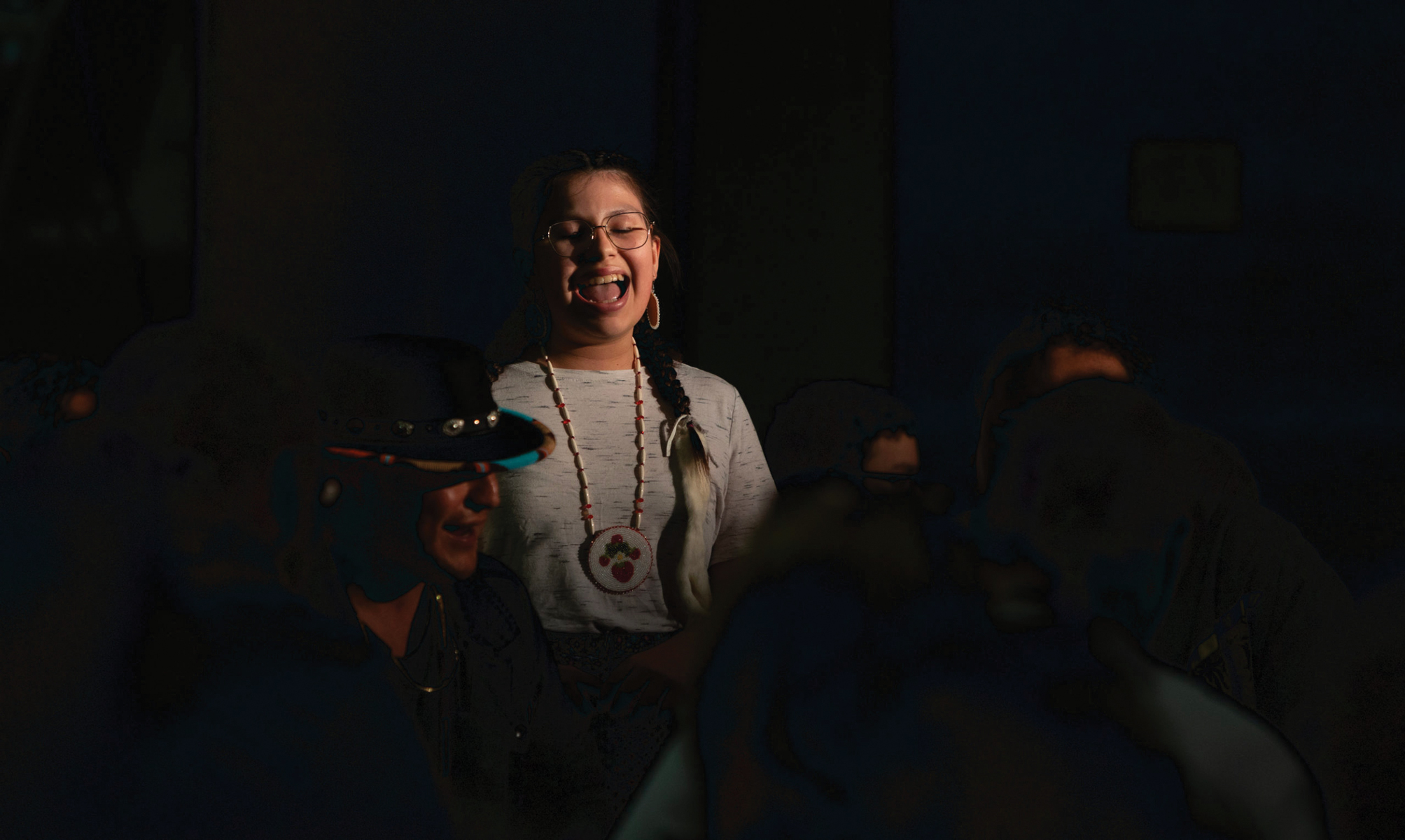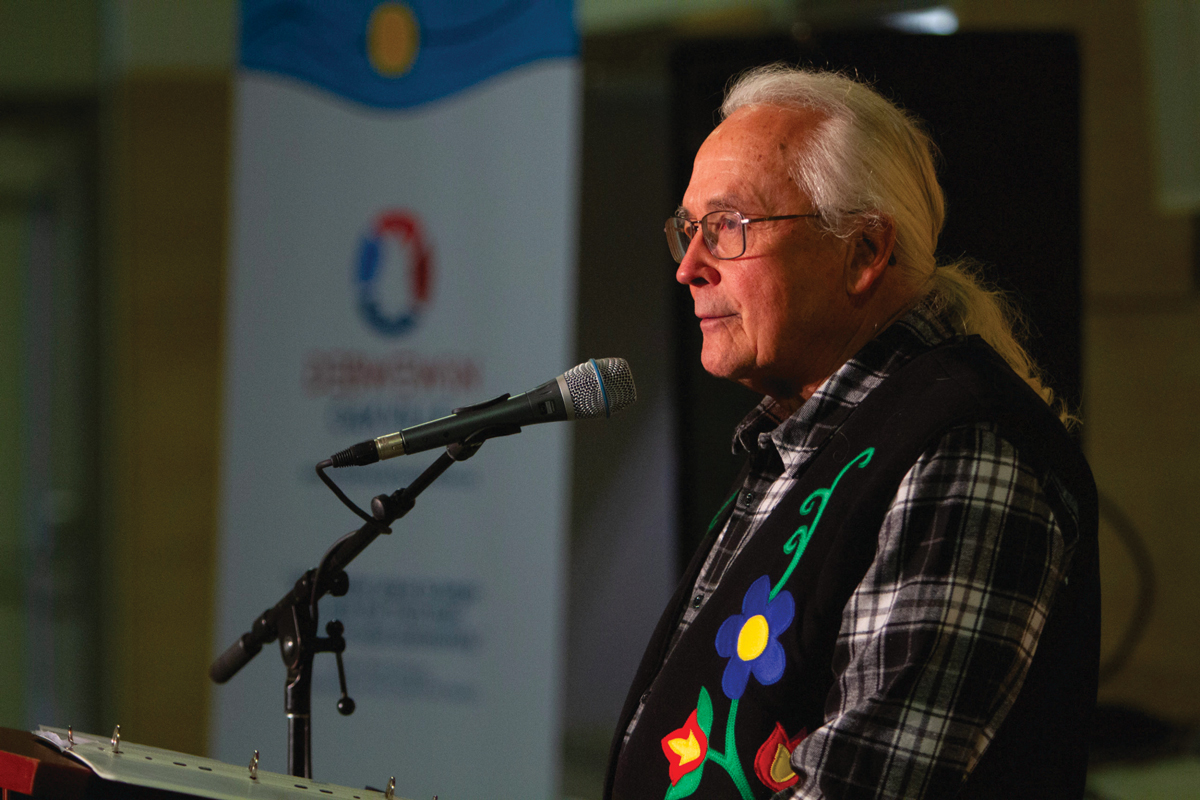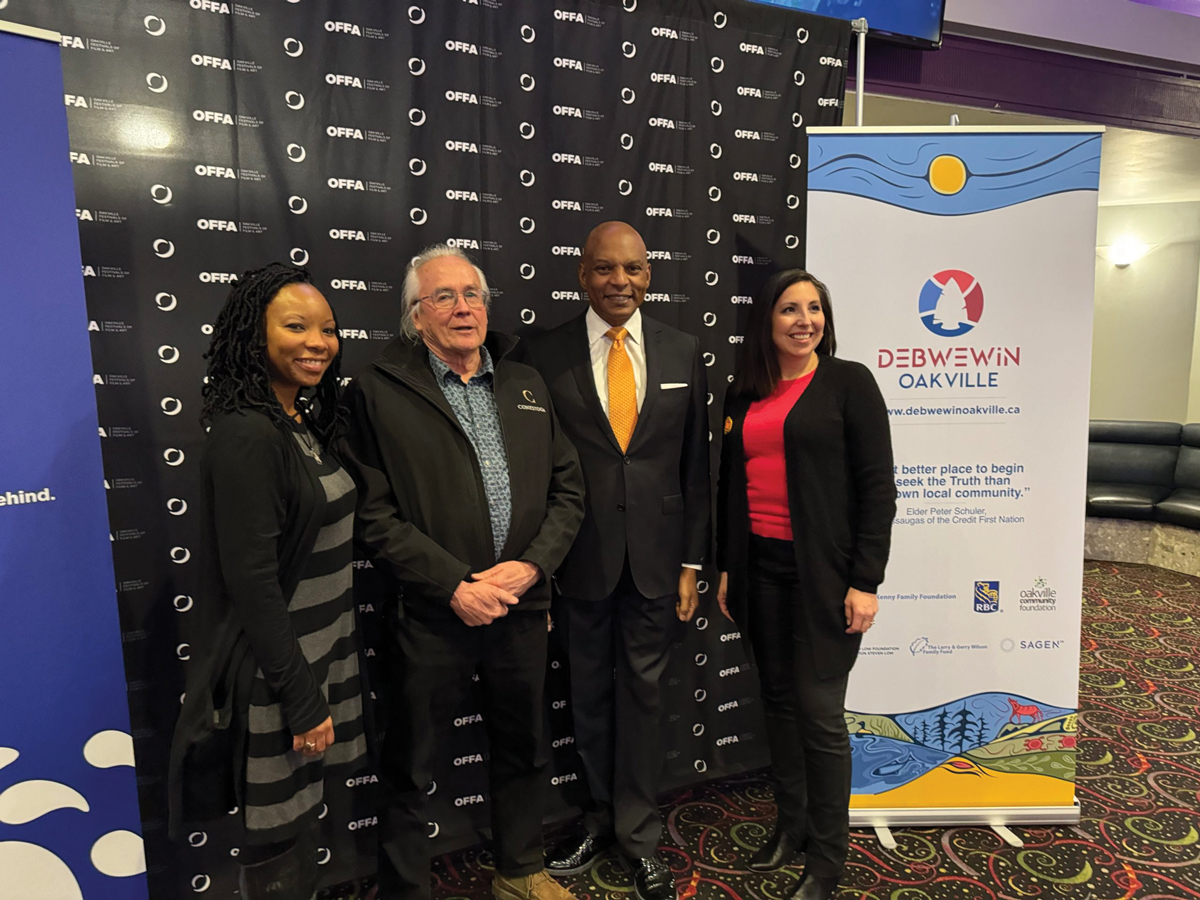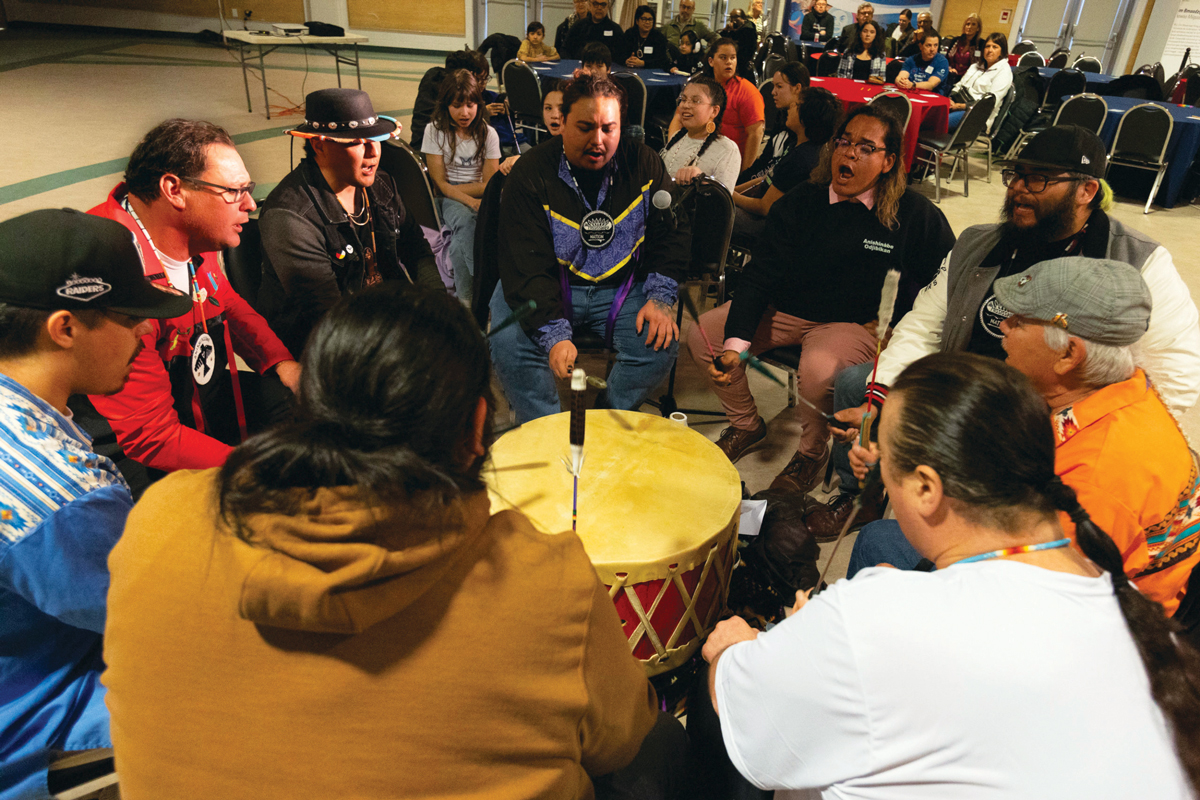
5 minute read
Debwewin: Oakville’s Truth
By Rebecca Dumais
What better place to begin to seek the Truth than your own local community.
- Elder Peter Schuler, Mississaugas of the Credit First Nation
As rich as Oakville’s history is, the lack of knowledge and understanding of its Indigenous roots has been a harsh truth, which is now being uncovered thanks to Debwewin: The Oakville Truth Project.
Debwewin is a partnership between the Mississaugas of the Credit First Nation (MCFN) and the Oakville Community Foundation (OCF) to further a shared understanding of Oakville’s Indigenous past and support local Truth & Reconciliation.
Debwewin raises questions about Oakville’s Truth such as: “What happened to the local Treaty holders, the Mississaugas of the Credit First Nation?” and “Why did Treaty 22, which includes coverage of Oakville main waterways, Sixteen Mile and Bronte Creek, leave the Mississaugas homeless?”

MCFN have long historical roots in Oakville. Understanding the local history of the Indigenous people in Oakville from an Anishinabek perspective is an important first step on the path toward Truth and Reconciliation. “Debwewin” refers to one of the Anishinabek seven grandfathers’ teachings for “truth.”
Debwewin is inspired and guided by MCFN Elder Peter Schuler, along with membership from leading academics, historians, legal claims experts, Indigenous knowledge keepers and guides. The Project is supported by Ogiima Kwe (Chief) Claire Sault and the MCFN Council.
Georgia LaForme, Communications and Engagement Lead of MCFN, cites a quote from Elder Peter that she feels describes the project best. “‘Working at MCFN, we are getting all kinds of requests from municipalities, organizations across our Treaty Lands, which is 3.9 million acres, and there’s just so much work to be done ― and also from individuals who want to know what they can do to support us, what they can do to promote reconciliation. You should always start with learning about what Treaty you live on.”
Just how important are the Treaties? “It was how Canada was formed ― Treaties of allyship. We need to reimagine our allyship and support our indigenous friends,” says OCF CEO Wendy Rinella.

As a first step, the Debwewin team set out to determine the boundaries of the two treaties that cover Oakville: Treaty 14 and Treaty 22. “With the help of land surveyors, an interactive map was built on the Debwewin website that allows visitors to determine the Treaty land in which they live,” says Rinella. “Once the boundaries were established, highly visible and colourful Treaty signs were placed throughout the Town at various landmarks, each equipped with a QR code for more information.” The signs, designed by The Jensen Group, are available for purchase online for your home or office.
Additionally, Moccasin Trail Walks at Lion’s Valley and Bronte Creek offer signage and snappable QR codes. New this year is a new multi-panelled museum display, which will be available to borrow for organizational events.
A report called Friendship, Peace and Respect for All Future Generations: Oakville-based treaty relations between the Crown and the Mississaugas, was produced in February 2023 to remedy the knowledge gap of Oakville’s treaties and Indigenous history. “It explored the treaties in how they were meant to be received: as an ongoing relationship between allies. The report goes into detail of Treaty 22 and the truth of how the Mississaugas became landless, and that the Mississaugas never surrendered their land, but it was instead given in trust to the Crown as they went to great lengths to protect both the land and waters in their traditional territory,” LaForme says.

Rinella recommends signing the Acts of Allyship online to continue learning and discovering these truths and to promote reconciliation. Allyship, as defined in the OCF’s Reconciliation, Equity and Anti-Racism Statement is “An ongoing process of learning where a member of a different group works to end a form of discrimination for a particular individual or designated group. Allies must also have some degree of power to effect change.”
Everybody has to find their path, Rinella says. “If you are an artist, how you express yourself through art may be to develop partnerships with Indigenous people; if you run a business, what are you doing to include Indigenous suppliers or products and services, or employees? We all have a role to play. We’re supposed to both mutually benefit from the land. They’re treaties based on allyship and that idea of mutual benefit is reciprocity.”
LaForme has been impressed with the work of the OCF to help move the project forward, as well as the receptiveness of the Town of Oakville. “I think the project is just getting started but we’ve already come a long way in terms of the work around awareness and it’s been very meaningful work for me,” she says.
For more info, visit DebwewinOakville.ca










